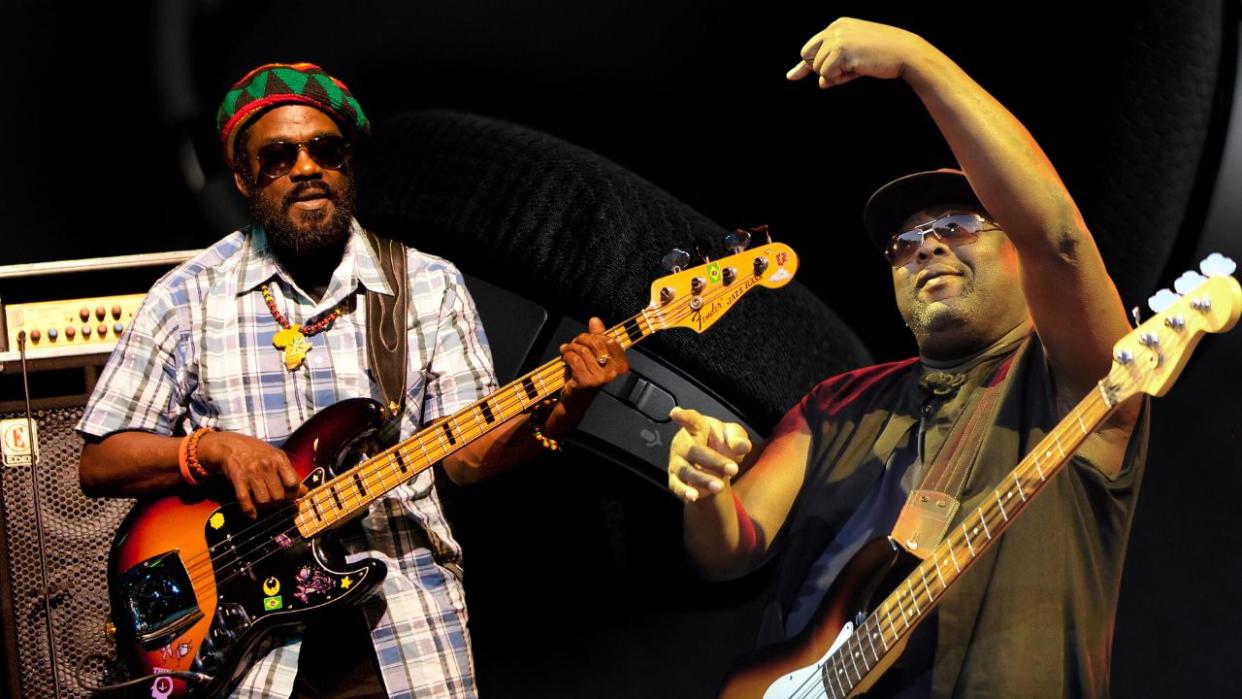“I tell Bob Marley, this is the bass player I’m bringing up – let him play”: How Robbie Shakespeare wound up playing bass on The Wailers’ Concrete Jungle

- Oops!Something went wrong.Please try again later.
- Oops!Something went wrong.Please try again later.
- Oops!Something went wrong.Please try again later.
Known as ‘Family Man’, due to his voluminous offspring count, Aston Barrett is something of an institution in reggae realms. His heavy, loping basslines beneath Bob Marley’s biggest hits have enthralled audiences for decades. Songs like Kaya, Could You Be Loved, One Drop and Three Little Birds all owe much of their success to his melodic bass playing.
As basses go, the Hofner 'Beatle' bass is not a widely recognized part of reggae’s roots – that spot being reserved primarily for the Fender Jazz Bass – but it did figure prominently in Barrett’s early years, as well as those of another bass guitar prodigy out of Jamaica. “I gave Robbie Shakespeare his first Hofner bass,” Family Man told BP in 2007. “I tell him that when I’m out of Jamaica on the road with Bob and the Wailers, he must dominate the place with bass. And he did.”
Shakespeare – who together with drummer Sly Dunbar made up one of the world's most sought-after rhythm sections, Sly and Robbie – told BP that he might have played the Hofner on the Wailers’ Concrete Jungle – one of the only tracks, over the course of eight years and nine studio albums, that didn’t feature Family Man on bass (although he did record a version, which is included on Island’s 2001 deluxe edition of Catch a Fire).
“That’s who I get my teaching from,” said Shakespeare on the importance of Barrett’s mentoring influence. “Family Man, him say, ‘This the original bass Paul McCartney used to play.’ But the neck on it would bend, so it kind of hard to stay in tune, and the strings were pretty high off it. Over the years, if I play a regular bass, it would feel funny because I get used to that big bow. But I had it for a long time because I love the sound. It just have a bass and treble – my bass was always on and the treble always off.”
Shakespeare,who sadly died in 2021 aged 68, first made a name for himself as bassist for Augustus Pablo’s Rockers label. “I played on most of Pablo's tracks,” he said when interviewed for the November '96 issue of BP. “In those days he wouldn't use anyone else – or sometimes it would be me and Family Man, who really schooled me a lot on bass.”
“That's when I first know Robbie Shakespeare," said Barrett. “I grew him into music and taught him how to deal with it, and he say he love the bass and he gonna turn into a real bass player. So he's kind of my bass student.”
Shakespeare and Barrett shared bass duties on a string of records for vocalist Winston Rodney and Burning Spear that later became dub staples, particularly Garvey's Ghost, and the incredibly dreamlike Living Dub, Volume One, which in its original version features songs from the seminal Spear album Social Living.
“After I bring up Robbie as a bass player I take him on sessions with me every time,” Family Man explained. “I wanted to keep him away from the hot-stepper business. I didn’t want him to walk on the wild side. When you’re young, there’s a lot of things to take you away. So I take him on the session and I tell Bob, this is the bass player I’m bringing up, and he’s good – let him play. And him play on some for Bunny and some for Peter, too. He was the first bass player for Peter Tosh’s band.”
In fact, when Shakespeare joined Peter Tosh and reggae band Word, Sound & Power, the Hofner was his main bass.
Island's 2001 Deluxe Edition of Catch A Fire is available to buy.
